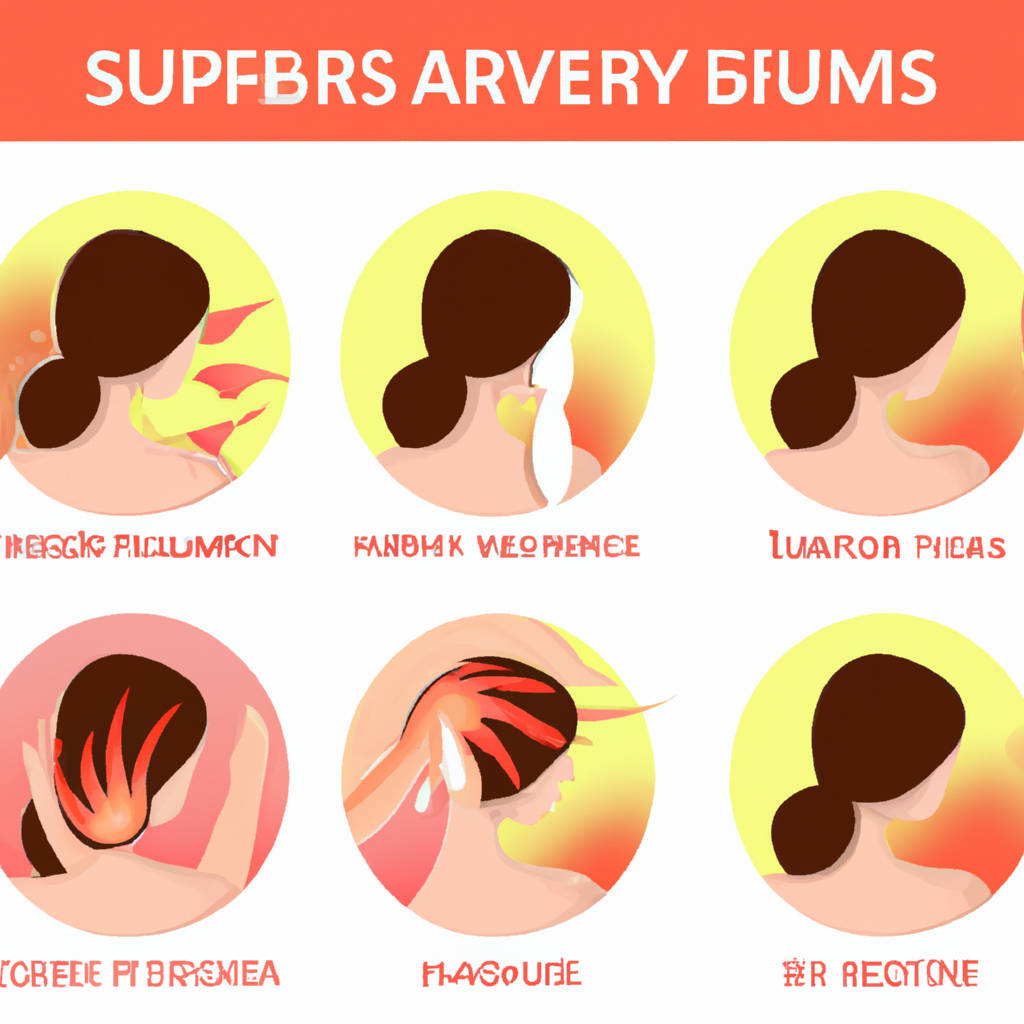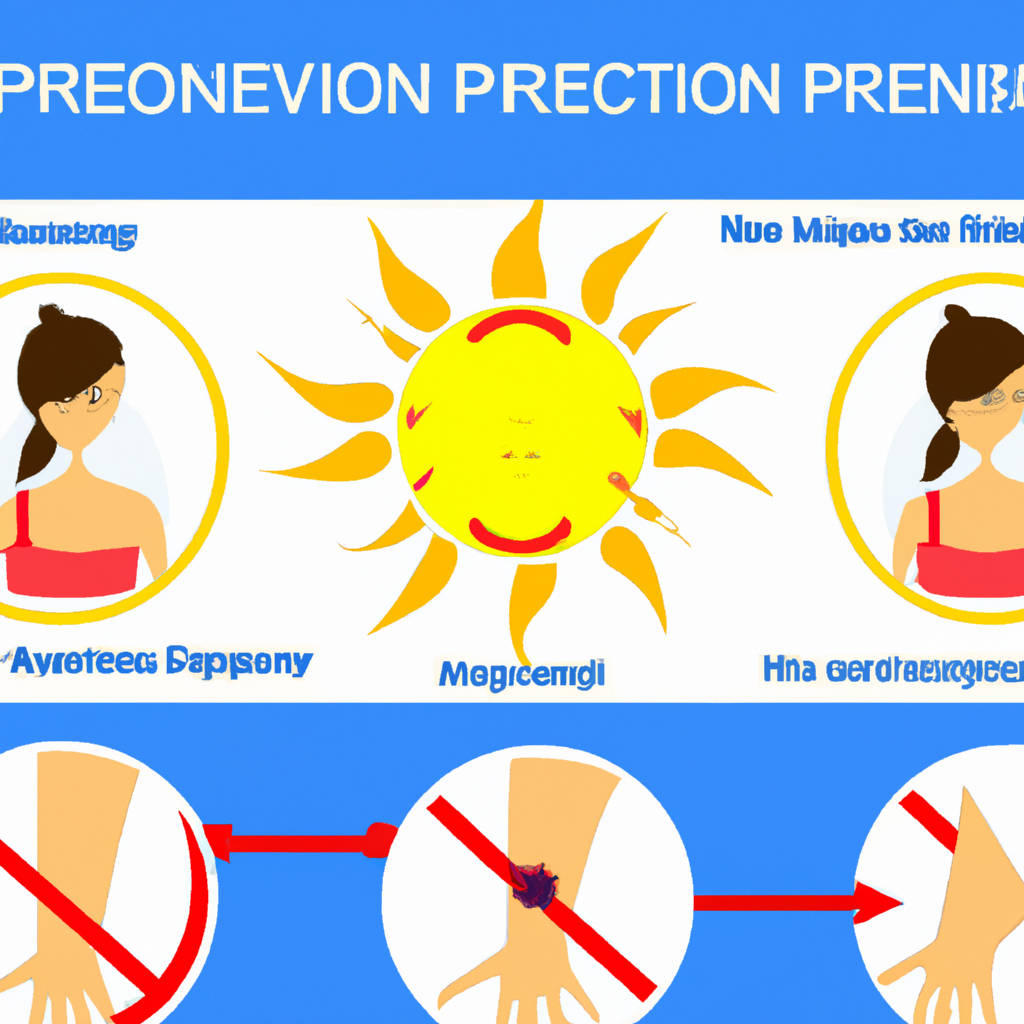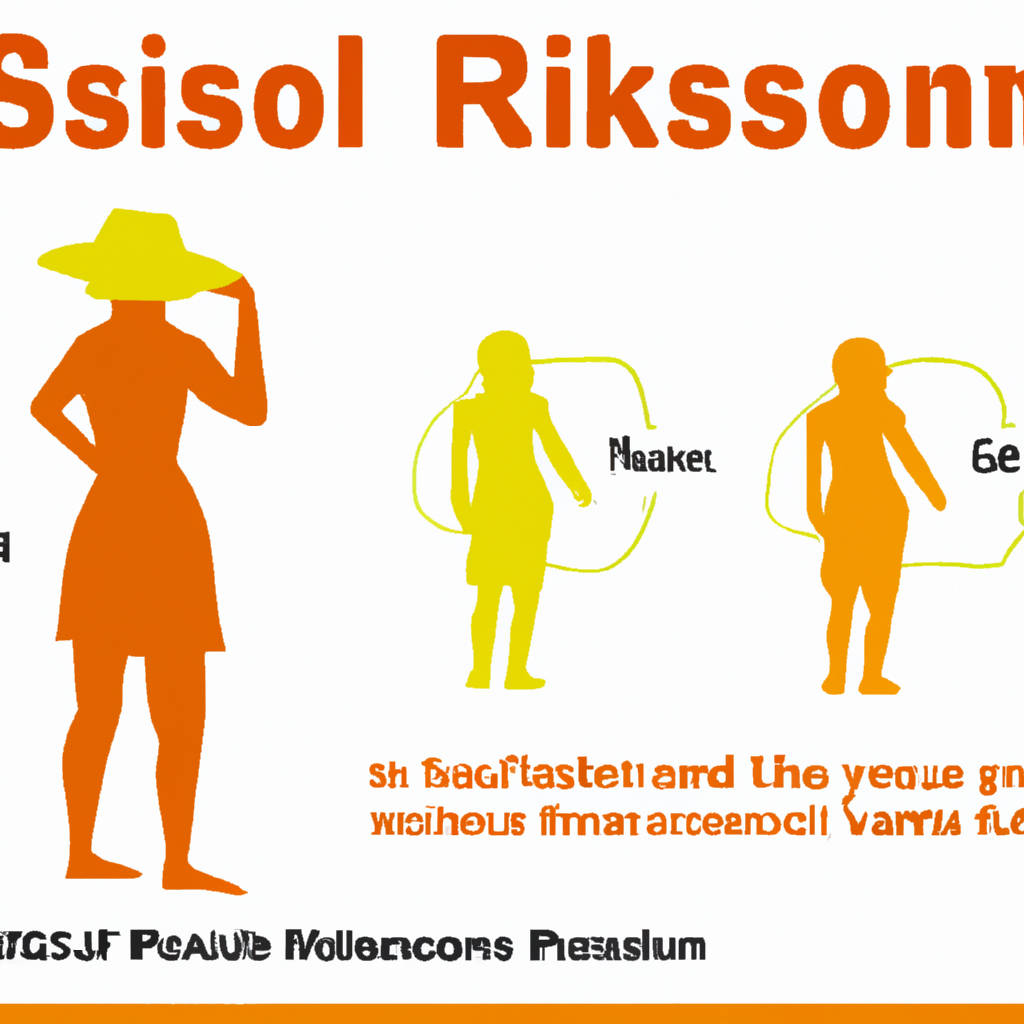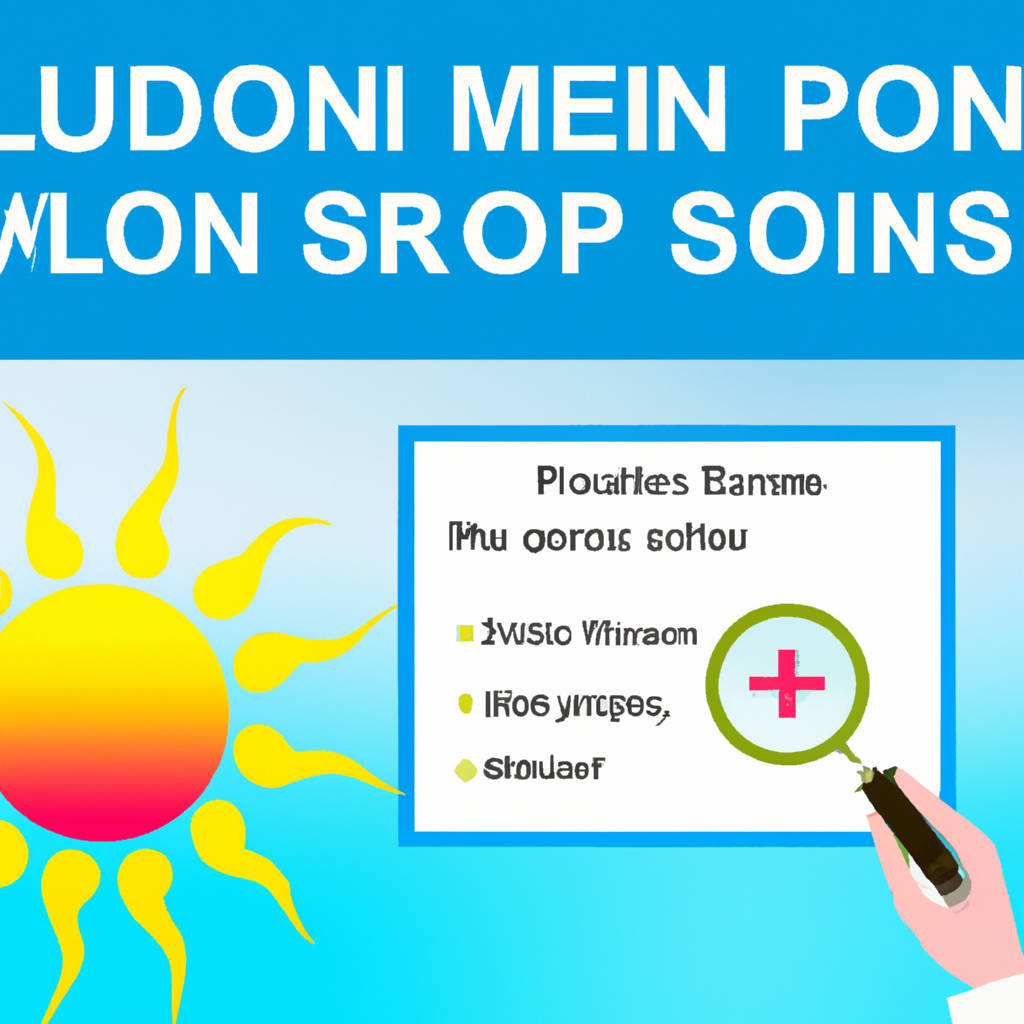Symptoms of severe sunburn can be easily recognized through a variety of signs that indicate the skin has been significantly damaged by the sun’s harmful rays. One of the most common symptoms is red, inflamed skin that is hot to the touch. This is often accompanied by intense pain and tenderness in the affected areas. In severe cases, blisters may form on the skin, which can be a sign of second-degree sunburn.
Other signs of severe sunburn include swelling, itching, and peeling of the skin. Additionally, individuals may experience fever, chills, and dehydration as a result of prolonged exposure to the sun. It is important to seek medical attention if you experience any of these symptoms, as severe sunburn can lead to serious complications such as infection and heat stroke. To prevent severe sunburn, it is essential to always wear sunscreen, seek shade when possible, and stay hydrated while spending time outdoors.

Understanding Sun Poisoning
Sun poisoning, also known as sunburn or photodermatitis, is a severe skin reaction that occurs when the skin is exposed to excessive amounts of ultraviolet (UV) radiation from the sun. This condition can cause redness, blistering, swelling, and pain on the affected areas of the skin. Sun poisoning is not actually a poisoning in the traditional sense, but rather a severe sunburn that can lead to more serious complications if not properly treated. It is important to understand the symptoms of sun poisoning, which can include fever, chills, nausea, and dizziness, as well as the risk factors that can increase the likelihood of developing this condition.
These risk factors can include fair skin, a history of sunburns, and taking certain medications that can make the skin more sensitive to UV radiation. In order to prevent sun poisoning, it is important to take precautions when spending time in the sun, such as wearing sunscreen, protective clothing, and seeking shade during peak sun hours. If sun poisoning does occur, it is important to seek medical attention to properly treat the symptoms and prevent further complications. Understanding sun poisoning and taking steps to prevent it can help protect the skin from damage and reduce the risk of developing more serious skin conditions in the future.
Preventing Chronic Inflammation from Sun Damage
Chronic inflammation caused by sun damage is a significant concern for many individuals, as it can lead to a variety of health issues such as premature aging, skin cancer, and other chronic diseases. In order to prevent chronic inflammation from sun damage, it is essential to practice proper sun protection techniques. This includes wearing sunscreen with a high SPF, seeking shade during peak sun hours, and wearing protective clothing such as hats and sunglasses. Additionally, it is important to reapply sunscreen regularly, as it can wear off over time, especially when swimming or sweating.
It is also recommended to avoid tanning beds, as they can also contribute to sun damage and inflammation. In addition to external measures, it is important to nourish the body from the inside out by consuming a diet rich in anti-inflammatory foods such as fruits, vegetables, whole grains, and omega-3 fatty acids. These foods can help combat inflammation and protect the body from the damaging effects of the sun. Overall, by taking proactive measures to protect the skin from sun damage and inflammation, individuals can maintain their health and prevent the development of chronic diseases associated with prolonged sun exposure.

Recognizing Sun Poisoning Symptoms
Recognizing sun poisoning symptoms is crucial for maintaining good health during the summer months. Sun poisoning, also known as severe sunburn, occurs when the skin is exposed to excessive amounts of sunlight. Symptoms can range from mild to severe and can include redness, swelling, and blistering of the skin, as well as nausea, headache, and dizziness.
It is important to be aware of these symptoms and seek medical attention if they occur, as sun poisoning can lead to long-term skin damage and increase the risk of skin cancer. Prevention is key in avoiding sun poisoning, and individuals should always wear sunscreen, protective clothing, and seek shade when spending time outdoors. Additionally, staying hydrated and avoiding prolonged sun exposure during peak hours can help reduce the risk of sun poisoning. By being aware of the symptoms and taking proper precautions, individuals can enjoy the summer sun safely and protect their skin from harmful UV rays.
Identifying Who is at Risk for Sun Poisoning
Sun poisoning, also known as severe sunburn, can affect anyone who is exposed to the sun for prolonged periods without adequate protection. However, certain individuals may be at a higher risk for developing sun poisoning. People with fair skin, light hair, and blue or green eyes are more susceptible to sunburns and sun poisoning due to their lower levels of melanin, the pigment that protects the skin from harmful UV rays.
Additionally, those with a history of sunburns or skin cancer are at an increased risk for sun poisoning. Individuals who take medications that increase sensitivity to sunlight, such as certain antibiotics, diuretics, and acne medications, should also take extra precautions to avoid sunburns and sun poisoning. Furthermore, people who spend a lot of time outdoors, especially during peak sun hours (10am-4pm), are more likely to experience sunburns and sun poisoning.
It is important for individuals in these high-risk categories to take preventative measures, such as wearing sunscreen with a high SPF, seeking shade when possible, wearing protective clothing, and staying hydrated to reduce the risk of sun poisoning. By identifying who is at risk for sun poisoning and taking appropriate precautions, individuals can enjoy the sun safely and reduce their chances of developing severe sunburns and related complications.

Home Remedies for Sun Poisoning
Sun poisoning, also known as sunburn, can be a painful and uncomfortable condition that occurs when the skin is exposed to excessive amounts of ultraviolet (UV) radiation from the sun. While it is important to protect your skin with sunscreen and clothing to prevent sunburn, there are also several home remedies that can help alleviate the symptoms of sun poisoning. One popular home remedy is to apply aloe vera gel to the affected area.
Aloe vera has anti-inflammatory properties that can help reduce redness and swelling, as well as soothe the skin. Another remedy is to take a cool bath with baking soda or oatmeal to help relieve itching and discomfort. Additionally, applying a cold compress or ice pack to the sunburned area can help reduce pain and inflammation. Drinking plenty of water and staying hydrated is also important to help the body heal and recover from sun poisoning.
In some cases, applying a mixture of apple cider vinegar and water to the sunburned skin can help reduce pain and promote healing. While these home remedies can be effective in treating sun poisoning, it is important to seek medical attention if symptoms worsen or if the sunburn covers a large area of the body. It is also important to remember to protect your skin from the sun in the future to prevent sun poisoning from occurring again.
Knowing When to Seek Medical Attention for Sun Poisoning
Sun poisoning, also known as severe sunburn, is a condition that can occur when someone is overexposed to the sun’s harmful rays. While mild sunburn can usually be treated at home with over-the-counter remedies, it is important to know when to seek medical attention for sun poisoning. Symptoms of sun poisoning include blistering, severe pain, fever, chills, and dizziness. If you experience any of these symptoms, it is crucial to seek medical help immediately.
Sun poisoning can lead to serious complications, such as dehydration, infection, and even heatstroke. In severe cases, hospitalization may be necessary to treat the symptoms and prevent further damage to the skin and body. It is also important to remember that certain individuals are more at risk for sun poisoning, such as those with fair skin, a history of sunburns, or a family history of skin cancer.
These individuals should take extra precautions when spending time in the sun and be vigilant about monitoring their skin for any signs of sun poisoning. Ultimately, knowing when to seek medical attention for sun poisoning can help prevent long-term damage to the skin and ensure a quicker recovery from this painful condition.

Medical Treatments for Sun Poisoning
Sun poisoning, also known as severe sunburn, is a condition that occurs when the skin is exposed to excessive amounts of ultraviolet (UV) radiation from the sun. Symptoms of sun poisoning can include redness, blistering, swelling, pain, and in severe cases, fever and chills. Medical treatments for sun poisoning aim to alleviate symptoms and promote healing of the damaged skin.
Over-the-counter pain relievers such as ibuprofen or acetaminophen can help reduce pain and inflammation. Cool compresses and moisturizing creams can also provide relief for the affected areas. In more severe cases, a healthcare provider may prescribe corticosteroid creams or oral corticosteroids to reduce inflammation and itching. It is important to stay hydrated and avoid further sun exposure while the skin heals.
In some cases, severe sun poisoning may require medical intervention, such as intravenous fluids or treatment with antibiotics if an infection develops. Prevention is key in avoiding sun poisoning, so it is important to wear sunscreen with a high SPF, seek shade during peak sun hours, and wear protective clothing when outdoors. Overall, prompt and appropriate medical treatment for sun poisoning can help minimize discomfort and promote healing of the skin.
Tips to Prevent Sun Poisoning
Sun poisoning, also known as sunburn, can be a painful and dangerous condition that occurs when the skin is exposed to high levels of ultraviolet (UV) radiation from the sun. To prevent sun poisoning, it is important to take precautions when spending time outdoors. One of the most effective ways to prevent sun poisoning is to apply sunscreen with a high SPF (sun protection factor) before going outside. It is recommended to use a sunscreen with an SPF of 30 or higher, and to reapply it every two hours or after swimming or sweating.
Wearing protective clothing, such as hats, sunglasses, and long sleeves, can also help prevent sun poisoning by reducing the amount of direct sunlight that reaches the skin. Additionally, seeking shade during the peak hours of UV radiation, typically between 10 a.m. and 4 p.m., can further reduce the risk of sun poisoning. It is important to stay hydrated while spending time in the sun, as dehydration can increase the risk of sunburn.
Drinking plenty of water and avoiding alcohol and caffeine can help prevent dehydration. Finally, it is important to pay attention to the warning signs of sun poisoning, such as redness, pain, and blistering of the skin, and to seek medical attention if these symptoms occur. By following these tips and taking precautions when spending time outdoors, it is possible to prevent sun poisoning and protect the skin from the harmful effects of UV radiation.
